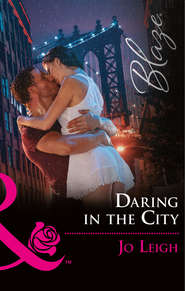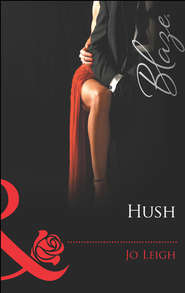По всем вопросам обращайтесь на: info@litportal.ru
(©) 2003-2025.
✖
Coming Soon
Автор
Год написания книги
2018
Настройки чтения
Размер шрифта
Высота строк
Поля
He really was an attractive man. Even in his dull suit there was something about him that appealed to her. Not just his rugged good looks, either. Obviously, she barely knew the man but still she saw an intelligence about him. He might come off all stoic and unflappable, but there was a brain in there. How she knew, she wasn’t sure, but she knew. She’d known from the first.
Over the years her ability to quickly gauge strangers had been developed and nurtured. Part of being a good concierge was to make and trust first impressions.
Even in the stressful situation of finding a body her radar had been active. Other parts of her had been active, too, which surprised her more.
Honestly, his looks weren’t all that remarkable. Not compared to the movie stars and models who frequented the hotel. But he was sexy in his rumpled suit and his mussed hair. She kept finding herself wanting to touch him.
“Okay,” he said. “I’ll pay for dinner if you don’t make me beg.”
She realized she’d been staring instead of talking. “The maid found it in Eccles’s room. Along with the remains of his scotch, which room service had delivered the night before.”
“How did you get it?”
“I told you. I know people.”
“Right.”
“Listen, Detective. I shouldn’t have the lens. It was a questionable move meant to help. If it came to light how I got it, good people could get hurt. I won’t let that happen.”
“I could compel you to tell me—”
“You could,” she said, stopping him, “but you’d be cutting off your nose to spite your face.”
“You want to be the go-between, I get it. While that might seem appealing or even exciting, it can also mean you’ll be caught in the middle. We’re talking murder here, Ms. Traverse. Not a game of telephone.”
She’d thought about this since the moment Theresa had told her about the lens. The last thing she wanted to do was to impede the investigation. Hush didn’t need the kind of publicity it was getting and the longer the killer was on the loose, the more it damaged the reputation of the hotel. Mia’s first responsibility, as long as she didn’t actually break the law, was to protect her employer. Second was to protect the staff. She could do both while still helping the detective, but only if he agreed to her terms. “I understand what’s at risk. We all want this murder solved.”
“What if it turns out to be someone from the hotel. Someone not involved with the movie?”
She sat back in the booth. “You think I want a killer working at Hush?”
He didn’t say anything, but his eyes told her he wasn’t completely convinced.
“Look, we have a lot of our staff assigned directly to the VIP guests. They’re all very discreet though. If you try to talk to them, you’ll get a whole lot of nothing. They trust me. They’ll open up to me.”
“There’s a big difference between being discreet and obstructing justice.”
“It’s up to you. Your way, there’s a lot of disruptions and rancor. My way, you catch the killer and everybody wins.”
He laughed. “Confident, are we?”
She sat up straighter and willed herself not to blush. “Yes, I am.”
He drank some more coffee, looked at her as if he was trying to see inside her head, but finally he nodded. “We’ll try it your way. But you don’t tell anyone you’re talking to me, got it? And you don’t hold anything back, even if it’s not good for the hotel.”
She stuck out her hand. “To the best of my ability, you have my word.”
He shook, although the doubt was still in his eyes.
She didn’t really want him to think too much more about their agreement, though. Time to change tactics. “You haven’t been home since last night.”
“No, I haven’t.”
“How come?”
“Part of the job.”
“It must be interesting. What you do.”
The look on his face said it was anything but. “Yeah. It is.”
She sipped her tea, debating for a moment letting it go, but the heck with that. “How long have you hated being a detective?”
Now that got a reaction. Alarm, then what, anger? No, not quite.
“I don’t hate my job.”
“Really,” she said.
“Okay. It’s lost some of its allure.”
“How come?”
His lips pressed together as if to keep his words from slipping out. Mia just waited. Like a good cop, she’d learned a lot over the years about the value of silence.
“The politics,” he said, finally.
She had the feeling he knew exactly what she’d done. That he was throwing her a bone. “What do you mean?”
“Too much paperwork, too much political correctness. It makes it hard to do the real work.”
“I can see that. You must be under terrible scrutiny. Everyone out there with cameras on their cell phones. Everyone ready to sue at the drop of a hat.”
With her commiseration, his defensiveness seemed to mellow. “It was my own fault. I had a romanticized view of what I’d be facing. I was naive to think things would get better when I became a detective.”
“But you solve crimes. You put bad guys away.”
“Not as often as I should.”
“Somehow I doubt it’s your work that’s at fault.”
“Why would you think that?”
“I watched you last night. You were thorough, com manding. You didn’t let anything slide. And here you are. Still at it even though you must be exhausted. Am I right?”
“You make it sound noble. It’s not.”
“That’s a matter of opinion. I’m sure it’s discouraging to jump though all those hoops but I don’t think you hate the heart of the job. It takes a unique individual to face the worst of people day after day, and still want to do the right thing.”











